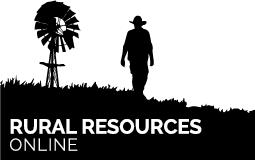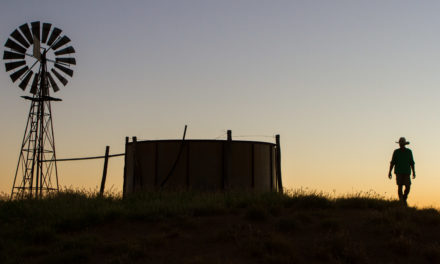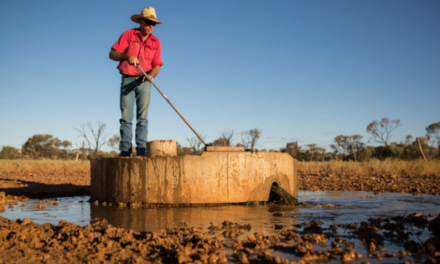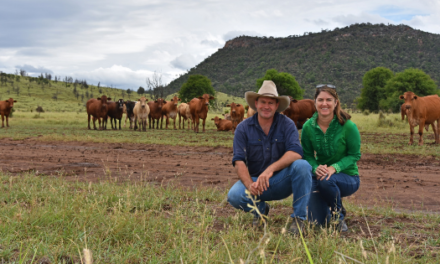In a time where politics is increasingly adversarial, news is instantaneously delivered, constantly reactive and filled with catchy emotive and attention grabbing headlines, it seems everyone is fair game.
Australian farmers, although innovative, resilient and hardworking, are in the main a conservative bunch who don’t go for big-noting or attention-grabbing behaviour. Their values won’t let them.
Working with nature is a very grounding experience. The challenges and rewards of being a farmer are equal in the lessons learnt. There is an emotional empathy that develops when you have been personally impacted by devastating loss.
There is also a huge personal satisfaction in growing food and fibre that is recognised as being amongst the best in the world.
Australian farmers wear many hats
Farmers and graziers are a busy bunch. In recent decades economies of scale have meant farms had to get bigger and more efficient to survive and the workload has increased. Social events aren’t as regular and trips to the big smoke usually coincide with medical, business or school drop-off appointments. There is also a tendency to catch up with rural friends at the coast when on holidays.
Time is a valuable resource and we all seem to have less of it to go around. Unfortunately this means that as we have been working so hard to improve our product, efficiencies and output, we have not focused on our marketing and public relations.
It is acknowledged that the city and rural divide is growing. The connection urban consumers once had to farmers is no longer a direct one. They are no longer a farmer’s customer they are the supermarkets’ customer.
Primary producers grow to the specifications of the market they sell into. They do it so well that clean, healthy, quality food and fibre is now an expectation for Australian consumers when they enter a shop.
Australian farmers have many supporters
Traditionally, lobby groups have targeted the Government to provide fair policies on trade and food safety. This was done on facts and figures.
In the meantime droughts have taken a devastating toll on many farming families and communities. Fortunately there have been charities to help. Their focus is to raise funds. Charities understand that for marketing to be effective there must be an emotional connection.
They have done a good job. Without their commitment and dedication many rural families would be lost. While they cannot raise enough money to fix the problems, they provide people on the ground to lift spirits and provide support services.
Let’s take nothing away from the charities who support rural Australians. But let us also acknowledge that Agriculture has not provided a balanced image of Australian farmers in the media.
Taking the eye off the ball
The traditional role of a farmer is not representative of what it means to be one today.
Australian farmers have adapted to change and continue to produce internationally acclaimed food and fibre. Farmers regularly pioneer new technologies, production methods and animal welfare practices.
But that is not the public image of farmers.
What farmers aren’t doing
It is human nature to want to feel good about ourselves. It is also understandable to want only the best for your family. As parents we want to impact good moral values onto our children. We use life examples to help with our teaching.
So where do you get your information from?
Lessons to be learnt
How often do you open an encyclopedia these days? Do you tune into the television to catch the latest news headlines? Are you in awe of how quickly children grasp technology? Do you click on Google to help answer a query?
If you Google ‘Australian farmer’, ‘what does a farmer do’ or ‘where does my food come from’ the top results list facts and figures on the topics. There are no engaging headlines or stories that make you want to click to read more.
A national survey by the Australian Council for Educational Research found that of the Year 6 and Year 10 students interviewed:
- more than 40 per cent of the Year 10s thought cotton came from an animal
- more than 25 per cent of the Year 6s thought yoghurt grew on trees; and
- of the Year 6s, only 45 per cent could identify that the bread, cheese and banana in a lunch box came from farms
In 2014 a survey by Rabobank of 600 students aged 15 to 18 found 77 percent of city teenagers knew little or nothing about farming and food production.
If you Google ‘land clearing in Queensland’ or ‘Great Barrier Reef threats by farmers’ the descriptions are more emotive and less factual.
Environmental lobby groups also need money to continue their work. They, like charities, employ marketers and invest in marketing campaigns based on emotional connections with their audience to incite action.
The changing nature of politics in Australia
Unfortunately, as individuals and political parties seek out ways to get into positions of power in Australia, minority groups are the losers. Australian farmers do not have the numbers on their own to prevent being a political scapegoat. We do not need donations, we do however, need city consumers prepared to stand by us and not only buy our products, but also send a message to politicians to leave us alone.
In order to achieve this we must take a lesson from the charities and greenies.
The future face of farmers in Australian agriculture
Farmers have to step out of their conservative comfort zone and recognise the importance of marketing and public relations for Australian agriculture. Consumers support our food, now we need them to want to openly support us.
The message we send must be positive because no one wants to be lectured or threatened.
By keeping it simple and consistent we can make a difference. Individual producers will need to learn about hashtags and social media. We must be where our consumers are. Rural publications do have role to play, but not in the traditional sense.
They can communicate a positive strategy moving forward and explain how social media and other public relations strategies can be a farmer’s friend.
Put yourself in the city consumer’s shoes and ask yourself, if you worked 12 hours in a factory to look after your family and provide food for them would you want to be told to #thankafarmerforyourfood?
A united message from Australian farmers is needed
It is not the product or the production methods but the empathetic connection that we must focus our marketing on. Urban consumers may not buy direct from farmers but they are the ones keeping Government accountable.
We need the smart marketers who can help us. We are not experts. Did you know that a much better result is achieved not by asking someone to support us but rather in recognising them as being a supporter? These are the subtle differences we need guidance with understanding.
It’s time to brainstorm and be supporters ourselves. Our message could be as simple as:
#fromourfamilytoyours we want to say thank you for being an #agsupporter. Our commitment to you is to focus on what is important and keep producing #politicsfreefood.
We are beyond asking what else should be done. It is time to step up, put your marketing hat on and engage once again with city consumers. But most importantly we must #keepitreal and be prepared to share our stories. Otherwise we will continue where we are now with others telling it for us.





